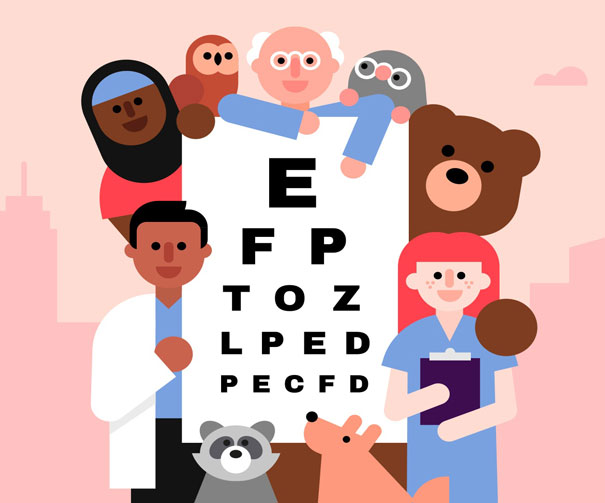When our ophthalmologists in Manhattan, Brooklyn, the Bronx, and Queens, NY, diagnose cancers affecting the eye, they work closely with radiation oncology, medical oncology, pathology, and plastic surgery specialists to produce the optimal outcomes. Without the quality vision care offered by New York Ophthalmology, many residents of New York City and Long Island wouldn’t have access to experienced ophthalmologists trained to diagnose rare eye cancers.
What Is Eye Cancer?
Cancer can develop in nearly every part of the body when cells begin to grow out of control. That’s true in the eye and areas surrounding the eye. When we talk about eye cancer, we’re referring to cancers that start in the eye. Some cancers, most often breast cancer and lung cancer, can spread to the eyes (secondary eye cancer).
The most common type of eye cancer that develops within the eyeball (globe) in adults is called intraocular melanoma. It is still quite rare compared to melanomas that develop on the skin. Melanomas develop from pigment-making cells called melanocytes. When melanoma develops in the eye, it is usually in the uvea (the middle layer of the eyeball that includes the iris), which is why these cancers are also called uveal melanomas.
What Are the First Signs of Eye Cancer?
Intraocular cancer often has no symptoms and is diagnosed by ophthalmologists during routine eye exams. If there are symptoms, they can be similar to those that accompany medical conditions that aren’t cancer. These symptoms include:
- Difficulty seeing
- Losing part of your field of vision
- Seeing flashes of light
- Seeing spots, floaters, or squiggly lines
Who Is Most Likely to Get Eye Cancer?
- Older than 50
- Caucasian
- Family history of intraocular cancer
Intraocular melanoma affects men and women almost equally.

Helping People Is What We Do
How Is Eye Cancer Treated?
- The type of cancer
- Location and size of the cancer
- If cancer has spread (metastasized)
- Your age and health
Your treatment team can include several different specialists besides your ophthalmologist, including a doctor who treats cancer with radiation therapy and a physician who specializes in chemotherapy.
Eye melanomas and lymphomas are rare, so treating these conditions should be done by experienced doctors. We work with specialists to ensure you get the best treatment possible. Eye cancer treatments can affect your vision, but doctors try to preserve vision whenever possible. This may not always be the best choice because eye cancers can often be fatal if left untreated and treatment may involve eye damage that results in loss of vision. On the other hand, some eye melanomas are small, grow very slowly (if at all), and can be watched carefully without treatment. This is why it is important to get the opinion of a skilled specialist in this field before deciding on treatment.
Diagnosing eye cancer at its earliest stages is a key factor in successfully treating the disease. Annual eye exams are the best way to ensure we can detect signs of any eye disease. Request a consultation using the online form or call our practice at (888) 212-3937 to schedule an appointment at one of our locations.
Related Blog Post
5 Tips for Choosing a Qualified Ophthalmologist
Most men and women choose their primary care physicians and dentists before they’re sick or have cavities. But choosing an ophthalmologist isn’t really something people consider until they need treatment for an eye condition or need help for chronic issues, such as diabetic eye care. At our 5 locations in Queens, the Bronx, Manhattan and […]
Providing Advanced Eye Care Access to ALL
Even as our practice continues to grow and we prepare to open new locations, New York Ophthalmology remains dedicated to providing access to advanced eye care to all. Using the latest technology and techniques typically available only to the wealthy, we are especially committed to providing advanced care to those in our neighborhoods who may […]
New York Ophthalmology: Welcome to Our Family
While we often discuss procedures and answer common eye care questions on this blog, we want to take a moment here to share our story as a practice: From how we began to what makes our patient care outstanding. At New York Ophthalmology, we are proud to provide those looking for an ophthalmologist in New […]
